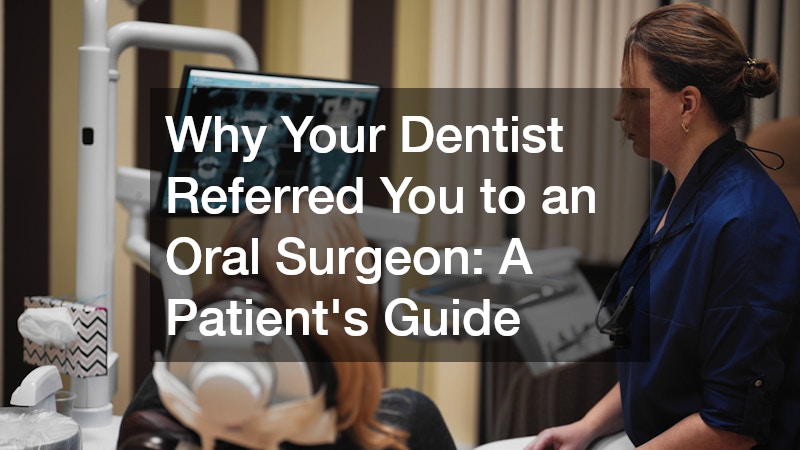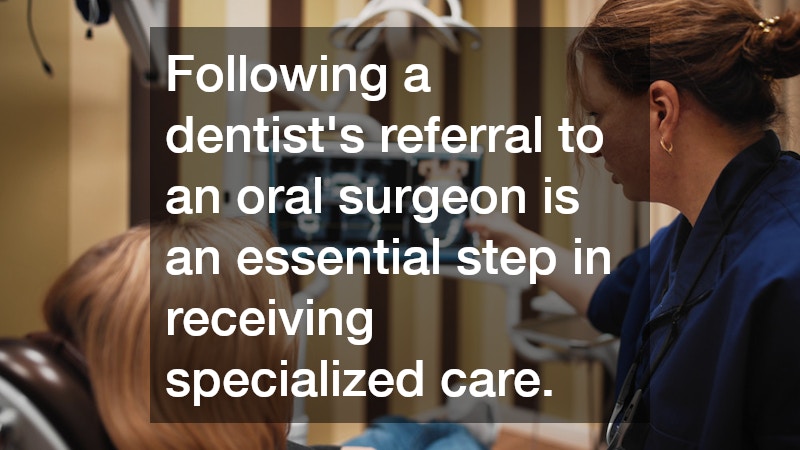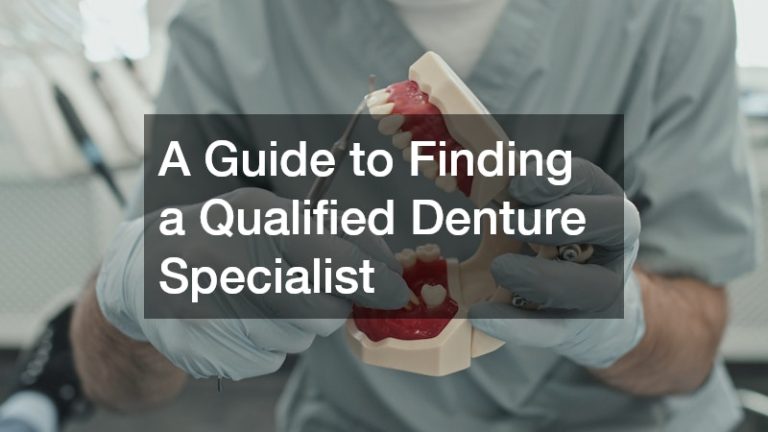Why Your Dentist Referred You to an Oral Surgeon A Patients Guide

Your dental health is a crucial part of your overall well-being, and maintaining it requires a team effort. While your general dentist plays a vital role in your routine oral care, there are instances where specialized treatment is necessary. This is where an oral surgeon in Leander, TX comes in. Dentists and oral surgeons work together to ensure you receive comprehensive dental care, addressing both routine maintenance and specialized procedures.
Dentists are often the first to detect potential problems that may require an oral surgeon’s expertise. They perform regular check-ups, cleanings, and address common dental issues. However, when complex procedures are needed—such as wisdom tooth extraction or corrective jaw surgery—your dentist may refer you to an oral surgeon. Understanding this collaborative relationship helps demystify the referral process and allay any concerns you might have.
This patient’s guide aims to provide you with a comprehensive understanding of why such referrals occur, what distinguishes dentists from oral surgeons, and what you can expect from an oral surgery visit. By elaborating on these aspects, we hope to underline the importance of adhering to your dentist’s recommendations for specialized care.
What is the Difference Between a Dentist and an Oral Surgeon?
At first glance, dentists and oral surgeons may seem to operate in similar realms, but their training and areas of expertise differ significantly. A general dentist focuses on preventative care, diagnostics, and basic procedures like fillings, crowns, and routine cleanings. They ensure your teeth, gums, and overall oral environment remain healthy. They are your primary care providers for dental health.
On the other hand, oral surgeons undergo extensive additional training beyond dental school to specialize in surgical procedures involving the mouth, jaw, teeth, and even the face. This includes dentoalveolar surgery (like wisdom teeth removal), reconstructive surgery, and dental implants. Their training encompasses four to six years of residency after dental school, focusing on surgery and anesthesia.
This specialization makes them the go-to experts for surgical interventions. When your dentist encounters a complex problem beyond the scope of general dentistry, they will refer you to an oral surgeon. This ensures you receive care from a professional trained to handle intricate dental surgeries safely and effectively.
When is it Necessary to See an Oral Surgeon?
There are several scenarios in which you might be referred to an oral surgeon. One of the most common reasons is the extraction of impacted wisdom teeth. These teeth can often cause overcrowding, pain, or infection and require surgical intervention for removal. Your dentist will identify these issues during routine exams and will recommend an oral surgeon for safe extraction.
Another situation necessitating an oral surgeon is jaw misalignment or temporomandibular joint (TMJ) disorders. These conditions can affect chewing, speaking, and even cause chronic pain. Oral surgeons can perform corrective jaw surgery, also known as orthognathic surgery, to realign the jaw and alleviate discomfort, thus enhancing your quality of life.
Additionally, oral surgeons are crucial for treating facial trauma, such as fractures or lacerations resulting from accidents. They are skilled in complex reconstructive surgeries that restore functionality and aesthetics, ensuring long-term oral health sustainability. These examples illustrate the breadth of scenarios where an oral surgeon’s skills are indispensable.
What Should I Expect During My Visit to an Oral Surgeon?
When you arrive for an oral surgery consultation, the process often begins with a comprehensive evaluation. The surgeon will review your dental history and any referral notes provided by your dentist. Diagnostic imaging, such as X-rays or CT scans, may be performed to get a detailed view of your dental structure, aiding in precise treatment planning.
During the consultation, the oral surgeon will discuss the recommended procedure in detail, outlining the steps involved, potential risks, and expected recovery times. This session also serves as an opportunity for you to voice any concerns or questions, ensuring you feel informed and confident about the upcoming treatment.
On the day of the surgery, you’ll receive specific instructions to prepare, especially if anesthesia is involved. Post-operative care is a crucial aspect of your visit, with the surgeon providing guidelines to facilitate a smooth recovery. This holistic approach helps ensure a positive experience, from consultation through to recovery.
Conclusion
Following a dentist’s referral to an oral surgeon is an essential step in receiving specialized care tailored to complex dental issues. While general dentists are adept at routine dental maintenance, oral surgeons provide the expertise needed for surgical interventions, addressing specific conditions that require advanced training and precision.
By collaborating with oral surgeons, dentists ensure their patients receive comprehensive care that prioritizes safety and effectiveness. Adhering to these referrals not only aids in immediate treatment but also in maintaining long-term oral health. Whether it’s for extracting impacted teeth, correcting jaw disorders, or treating facial injuries, oral surgeons play a vital role in your health journey.
Incorporating an oral surgeon into your dental care plan underscores the collaborative nature of healthcare where specialists work in concert to provide the highest standard of treatment. By understanding the referral process, patients are better equipped to participate actively in their health decisions, paving the way for informed and optimal care outcomes.






